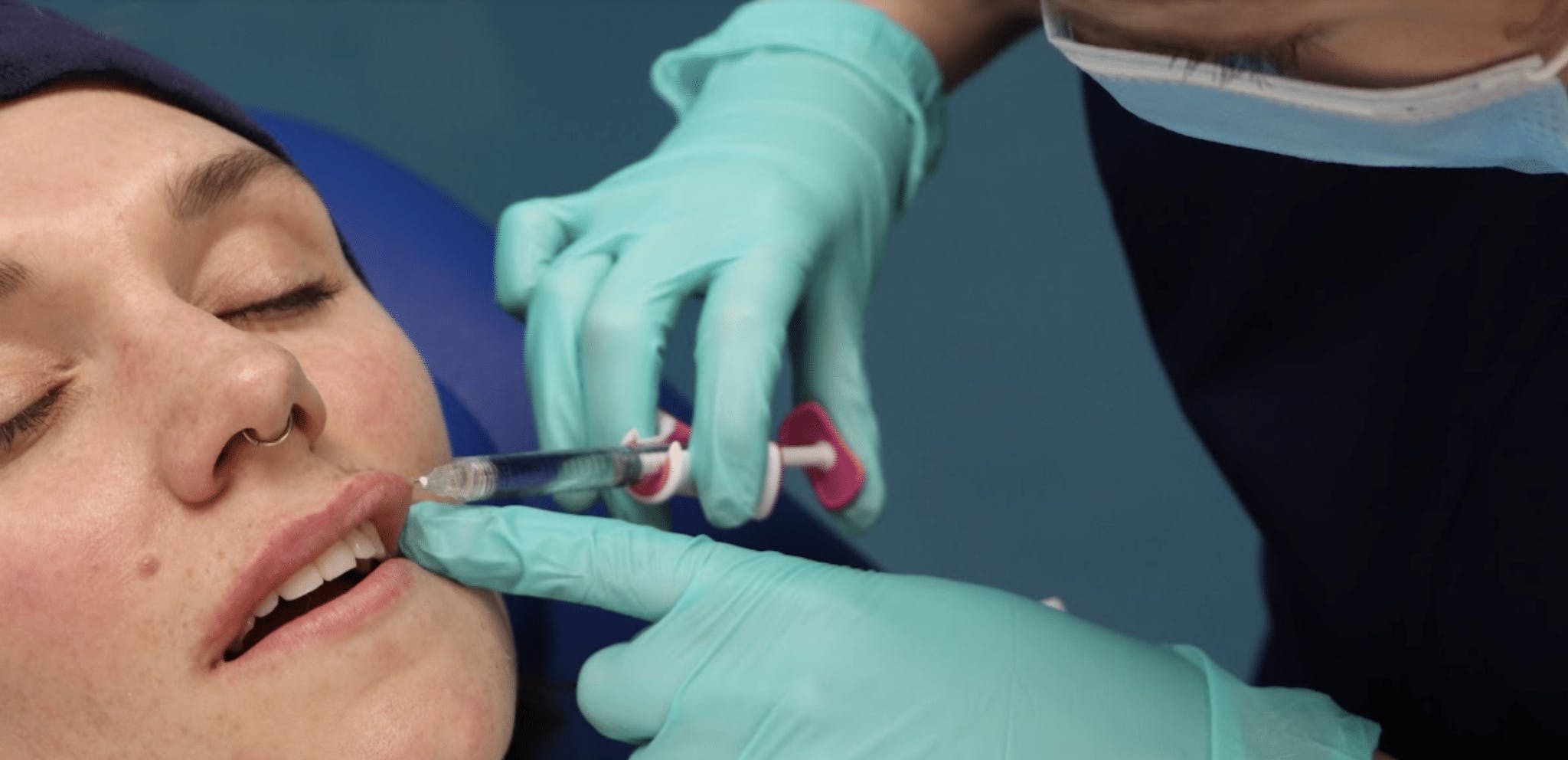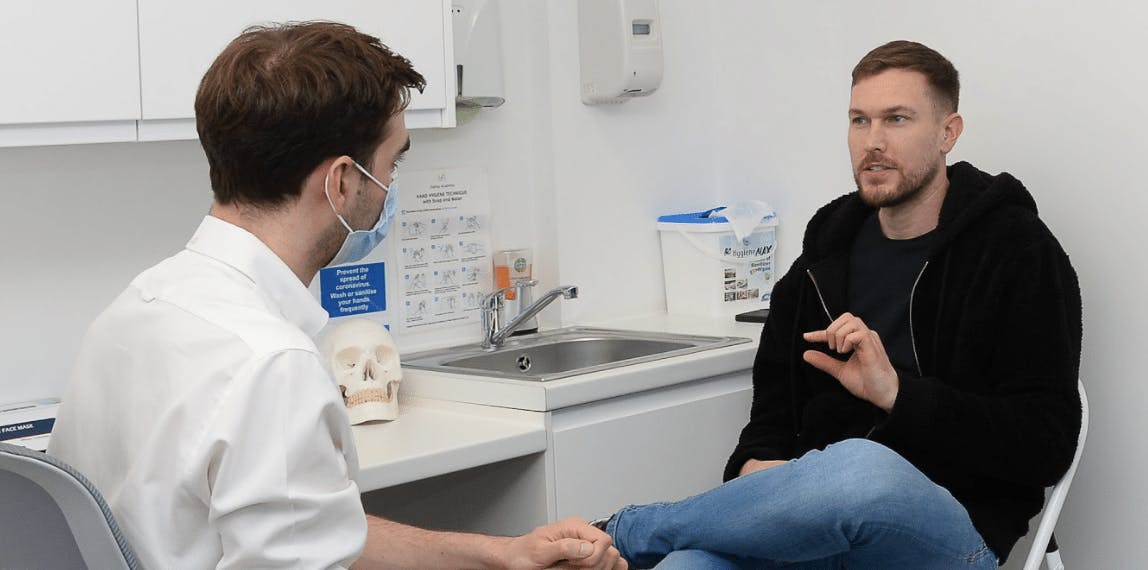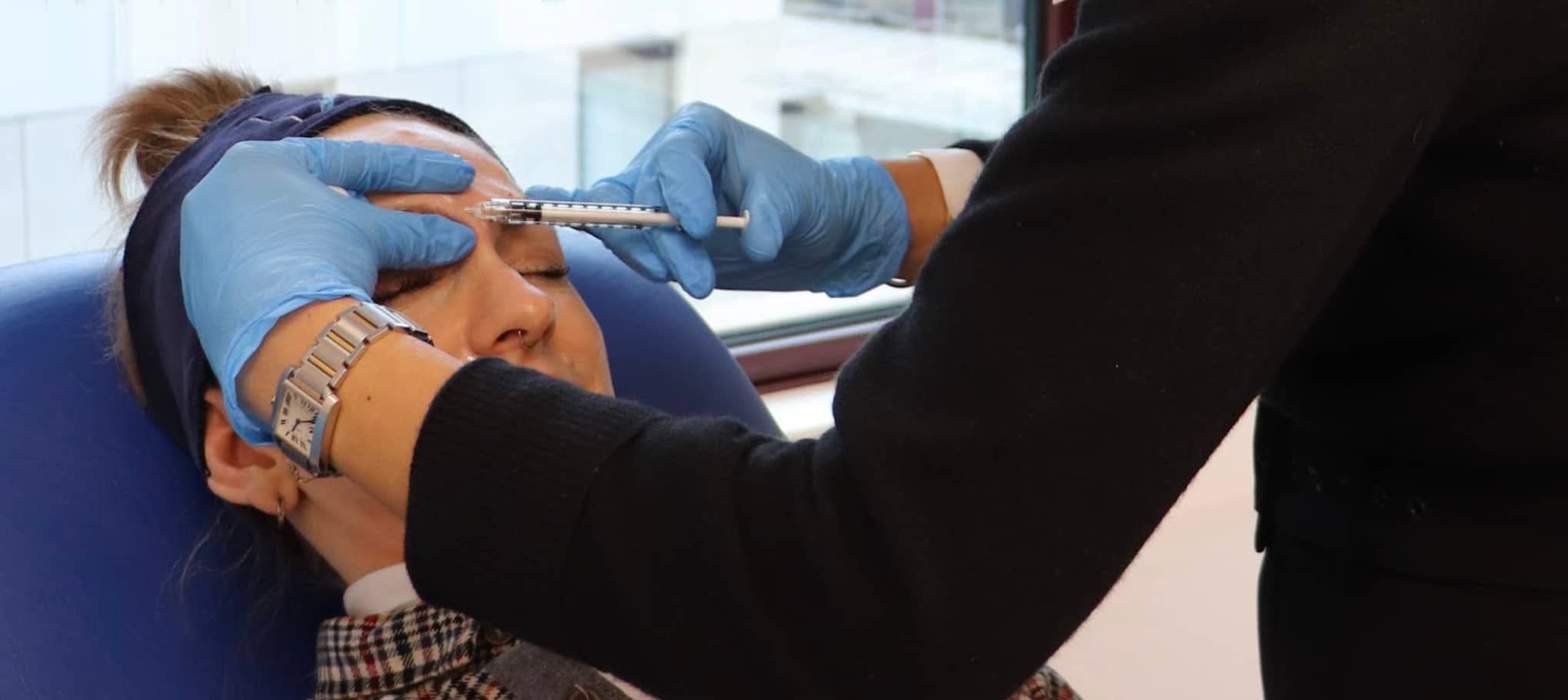Are you a Technician or an Aesthetics Specialist?

Are you a technician or an aesthetics specialist?
Don’t worry if you don’t yet know the difference between these two approaches. We spoke to Harley Academy founder and facial aesthetics expert, Dr Tristan Mehta to find out.
Here he explains what each of these approaches involves and why you should aim for specialist status if you’re hoping for a successful career in medical aesthetics...

THE INCREASING DEMAND FOR SPECIALISTS, MEDICAL AESTHETICS PRACTITIONERS
“For a while, I struggled to answer the question, ‘What does it take to really succeed and to grow a busy, successful aesthetics practice?’ I didn’t have enough data and I didn’t want to give people the wrong information,” recounts Dr Tristan.
“Now, I’ve been practising aesthetic medicine for almost ten years, mostly full-time teaching and injecting. So, I can tell you that there are more patients than ever looking for treatments.
“The thing that will differentiate one cosmetic doctor – or nurse, or dentist – from another is their ability to retain clients and to develop traction through word-of-mouth recommendations,” he highlights.
“But, this is the main point… There are two kinds of consultations happening in the UK, right now. The first is a transactional consultation, where you’re working as a technician. The second is where you’re working as a specialist.”
“If you’re working as a technician, there is work for you, but it may not have longevity. It’s also likely that this approach is limiting your potential.
“For specialists, there tends to be a wider, more secure client base thanks to developing a holistic practice and solid reputation. This involves offering patients a comprehensive, personalised treatment planning and delivery service, routed in sound, ethical medical practice.”
“The reason why some injectors succeed is because they’re working as a specialist, and establishing themselves as such is the best solution to the anxiety about ‘is aesthetics over-crowded?’.”
BEING AN AESTHETIC TECHNICIAN VERSUS AN AESTHETIC SPECIALIST

Aesthetic technician approach
Dr Tristan elaborates on the “transactional technician approach”, as follows: “So, you’ve done your basic training in botox and fillers. Your patient looks at a treatment menu and says ‘I’d like my lips doing. please’. You say ‘Okay, great, that’s £250. Here’s the consent form, sign here.’
“Maybe you’re doing this on a Saturday and have 10 patients booked in,” he suggests. “You want to treat your patients, make maybe £2,000 in a day and be very happy. The problem with this is that, because you’re trained to do botox and fillers, you’re positioning yourself as someone who offers simply that. By doing this, you’re reducing your depth of knowledge. and your perceived value to that of a technician.
“This doesn’t mean that you can’t deliver the treatment and maybe even get really nice results. It’s just that you’re missing the crucial aspects of what it really takes to have long-term success in the fast-paced world of aesthetic medicine.”

Aesthetics specialist approach
Dr Tristan explains, “When you’re working as a specialist, maybe the same patient comes in and they say ‘I’d like my lips treating, please’. Maybe you’ve got your menu, and maybe it’s still £250. The difference is that you’ll then have a thorough patient consultation.
“You’ll take a full history. Through this, you’ll understand from that patient exactly why they want their lips treating. During this consultation you’ll also find out if they’ve had lip filler before – if so, who with and which products were used. You’ll get to know what their main concerns are, what their ideas are for their facial aesthetics. From there you can factor aspects such as how old they are, into potentially what treatments they want.”
“Then you’ll examine your patient and look at them with a clinician’s eyes – as the expert – and assess how their proportions are. Discuss how far within the ageing process they are and from which areas they’ve lost volume.
“You can talk about skin treatments. The magic is then in designing a unique treatment plan in partnership with that patient. Ultimately, once you fully understand their reasons for treatment and their goals, it’s unlikely that they really just want lip fillers administered that day.
“It might be that you need to focus on the mid-face today, then in three months, they’ll need to come back for their lip filler. In the meantime, their homework is to take your recommended products home, along with your expert advice about how to use them and look after their skin.”

INSTILLING TRUST AND CONFIDENCE IN YOUR PATIENTS
Dr Tristan advises, “The truth is, 95% of practitioners across the UK right now aren’t capable of working in the ‘specialist’ way I’ve just described.
“If you ask them why they’re doing a certain treatment, they’ll say ‘that’s how I was taught’ or, ‘I’m trained to do that, don’t worry’.” He notes, “What they won’t say is, ‘I’m using this product in this layer of the face, because….’.
“When we apply these medical principles to aesthetics, it immediately resonates with patients. They recognise your level of expertise and your confidence. As a result, they have that trust in you that you’ll deliver a better outcome – and they tell their friends.
“That’s how you become a busy, successful aesthetics practitioner.”

WHAT THIS MEANS FOR HEALTHCARE PROFESSIONALS CONSIDERING A CAREER IN AESTHETIC MEDICINE
Dr Tristan says, “We don’t yet know how any new aesthetics regulations will affect non-medical aesthetics practitioners. However, in a largely unregulated industry, those with medical training – such as doctors, dentists and nurses – have an advantage from the outset.
“This is due to our understanding of anatomy, injecting experience and the patient trust that comes from having a regulated professional administer your treatments.
“However,” he cautions, “just because you’re a healthcare professional, this doesn’t mean you should start offering cosmetic injectables straight away. You need the right specialist aesthetics training to allow you to seamlessly transition your medical knowledge into injectables.
“Technically, you can start a career in aesthetic medicine just by doing a one-day course, like I did when I first started out. I learned the hard way that this is not enough.
“It’s why I created the Level 7 in injectables – to provide healthcare professionals wanting to start a career in aesthetic medicine with a really thorough, hands-on training pathway. Something that, when delivered effectively, instils confidence as well as anatomical and product knowledge, alongside sound and safe injecting skills.”
“I talk about this a lot,” he says. “A one-day aesthetics course gives you a false sense of security. You only get a small amount of insight into what aesthetic medicine is about, and this is a specialism that requires much more in-depth learning to do safely and well.”
He adds, “There’s always room for more medical professionals who are safe, effective and ethical injectors. However, you still need to be willing to put in the effort it takes to get a new aesthetics career off the ground.”
All information correct at the time of publication
Download our full prospectus
Browse all our injectables, dermal fillers and cosmetic dermatology courses in one document
By submitting this form, you agree to receive marketing about our products, events, promotions and exclusive content. Consent is not a condition of purchase, and no purchase is necessary. Message frequency varies. View our Privacy Policy and Terms & Conditions
Attend our FREE open evening
If you're not sure which course is right for you, let us help
Join us online or in-person at our free open evening to learn more
Our Partners













STAY INFORMED
Sign up to receive industry news, careers advice, special offers and information on Harley Academy courses and services

